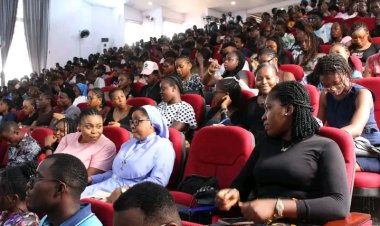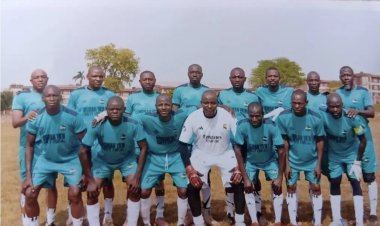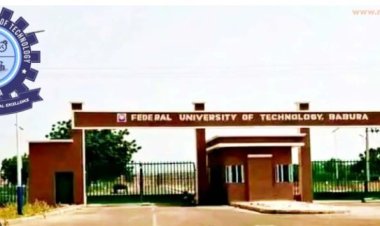Non-Promotion of Indigenous Languages Is The Reason Why There Is No Technological Inventiveness in Africa - IAUE Professor
Non-Promotion of Indigenous Languages Is The Reason Why There Is No Technological Inventiveness in Africa - IAUE Professor

Professor Priye Iyalla-Amadi made the assertion in her inaugural lecture delivered on Thursday, July 28, at the university auditorium, Myschoolnews.ng gathered.
The apparent lack of technological inventiveness in Africa has been attributed to non-promotion of the continent’s indigenous languages.
This is because a firm grasp of one’s native tongue and the depth of comprehension and ability to express circumstances in the natural environment make the understanding of foreign concepts easier.
With the title: “Translation As A Tool for Indigenous Language Engineering: The African Experiment”, Iyalla-Amadi contended that if the vocabularies of the native languages were developed through translation, they would become an effective tool to reflect the scientific and technological happenings that abound in Africa.
The Professor of French and Translation Studies argued that indigenous language engineering would facilitate the translation of foreign words into native terms that would reflect the technological thoughts and advancement of Africa’s technological development.
Noting that translation is a potent cross-cultural communicative tool that could be used to better express the thoughts and linguistic goals of speakers of various languages, she affirmed that it was needed to provide the platform for Africa to access the global technological heritage.
Iyalla-Amadi, maintained that Africa has all the natural resources for technological development, but was faced with the problem of application of the principles.
Citing the abundance of all the primary sources of renewable energy like sun, wind, and water in Africa, the erudite scholar insisted that the continent could not maximize such potential because it lacked the competence to harness the technology to solve its social problems.
According to her, if African terms were coined to express and describe foreign technological phenomena, the African speaker would be able to visualize the idea and translate same to technological manifestations.
Urging Africans to go back to their indigenous languages so that the continent could participate in the global advancement in technology, she enjoined parents to teach their children their native tongues so that they could carry on with the linguistic traditions established to help the continent take its rightful place in the world.
In his remarks, the Acting Vice-Chancellor, Professor Okechuku Onuchuku advocated the study of indigenous languages in the early years of school and urged parents to teach their children their native languages at home in view of the fact that all that the children do these days are conducted in English.
The Vice-Chancellor observed that translation has helped to bridge the communication gap created by the multiplicity of languages, and described the inaugural lecturer as a thorough-bred scholar.
Earlier, the Registrar, Mrs Hope Kue-Ikoro said the inaugural lecture was a time for a professor to tell the world what solutions his or her studies would offer society.





